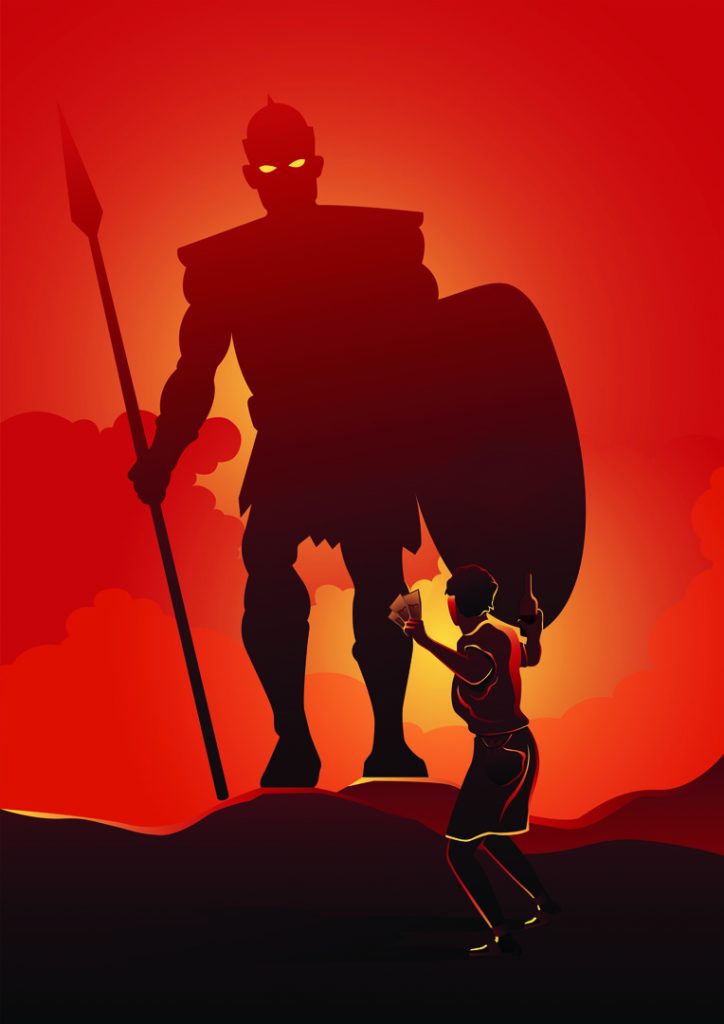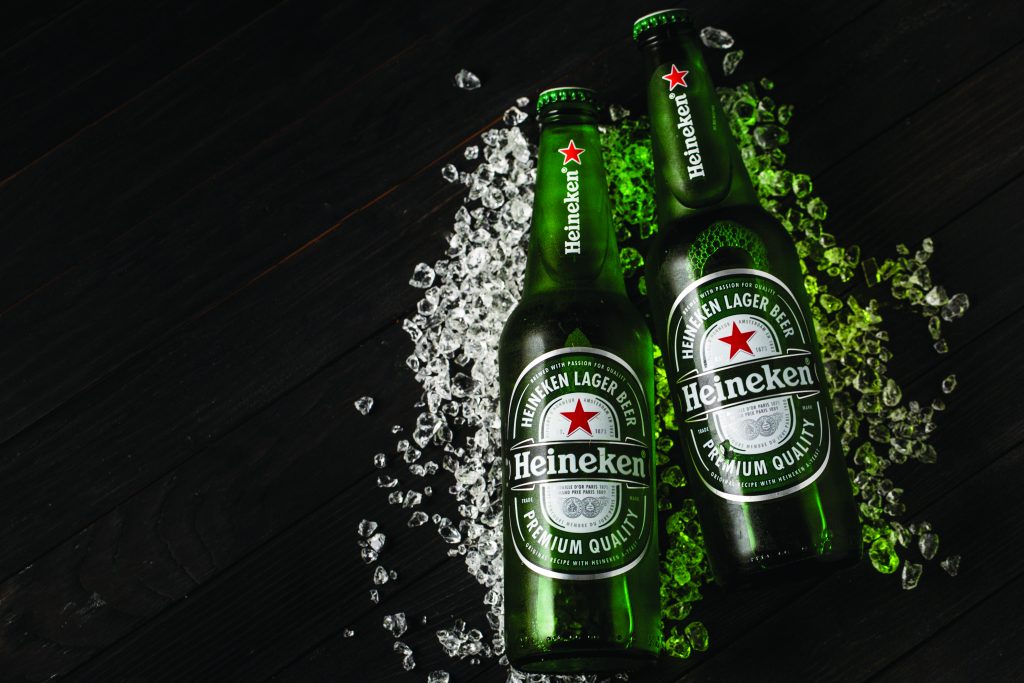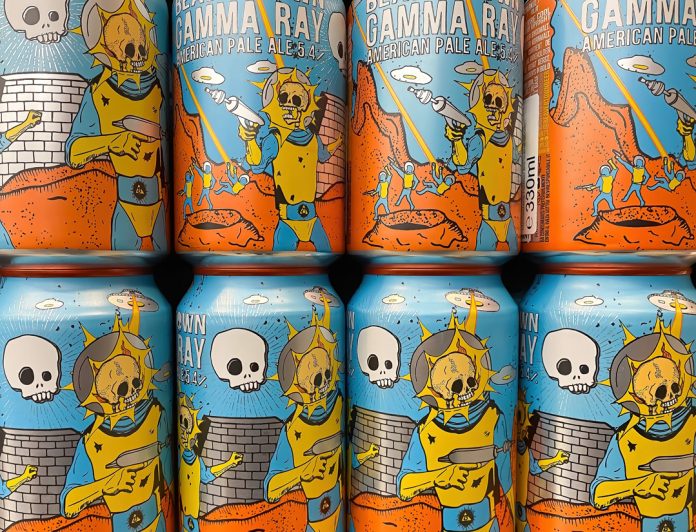Brett Goldhawk challenges the widely held notion that global drinks giants are a threat to the future of craft brewers
I never understood the misconception that a few people supposedly working in a shed, garage or grandma’s kitchen were somehow different to a boardroom of executives running global corporations. Apple was not invented in a garage in Northern California. And I’m pretty sure that Logan Plant’s kitchen, the place where he began brewing Beavertown (in a rice pan no less), isn’t remotely relevant to the recent sale of his remaining shares to Heineken.
And that’s always been my issue with Craft Beer. The whole notion of it is complete BS. So many people getting caught up in the hype – a classic good vs. evil battle of epic proportions with everyone willing on the underdogs and misfits.
It’s David vs. Goliath. To the death. Down with the corporations.

I however prefer the version of this story, told by Malcolm Gladwell, which explains that David was always pretty badass, and it was never in any doubt that he’d defeat the might of Goliath.
You see the founders of these ‘small brew’ companies were never prophets, shepherds, or local heroes (or villains depending on which side of the pantomime fence you sit on). They were just smart men looking to make a well-earned buck – who quite often also get caught up in their own BS along the way. (Here’s looking at you Brewdog).
But Beavertown are no different.
When Logan Plant sold his initial shares to Heineken in 2018, he was quoted as saying “This is an arms-length deal. My wife and I remain in full control of the company. We’ve been very lucky — Heineken said to us, ‘Here’s £40 million, build this dream, and if you need us, we’re here’.”
Well, it only took 4 years for him to fulfil that dream didn’t it!
But importantly Beavertown will grow significantly through the acquisition by Heineken. Craft has never really been about the founders’ stories or one of community togetherness. Craft is and always has been a product story. And a taste story.
What made Craft (as a category) unique was the desire to brew the very best beers, starting out as a niche, where most beers were just too challenging, before realising that the space for growth was a little more centre ground. A place where you still got the refreshing hit of a lager but with the depth and taste of an Ale; Camden Hells, Punk IPA, Beavertown Neck Oil, Meantime London Pale. But by being centric in matching mid palate tastes, the rebel approach is always tinged with the mainstream mindset underpinning the core.
Within the ‘product story’ it was then refreshingly delivered using different design codes to that of yesteryear, before hitting the ‘scaling and growth’ challenge that drives every ambitious business. Which is exactly why the big global brewing companies then come into play. It’s a win-win for everyone, where being the rebel and people’s champion is only a very small part of the mix.
And alas. I did learn the hard way. I like you, did once believe there was more to craft than just a product story.
Five years ago, we were briefed to bring a new craft beer to market for a global brewing business. Through a series of Qual groups, we were told that if we were to do ‘craft’ it would have to be meaningful and full of purpose – giving back to the communities who support it along the way.
I had a genius idea.
We’d make a range of beers that would sink their profits back into helping disadvantaged youth get into the brewing industry. The more we sold, the more we’d help those most in need in finding a career. All the quant and qual that proceeded scored off the charts, with potential consumers standing on tables saying ‘If you make this, not only will we buy it, but we’ll head to our socials and share the story too’.
We couldn’t fail. But we did. We launched. It did ok. Then it didn’t.
In a busy pub people just don’t care about marketing or brand.They care about promotions that offer a prize or a discount. They don’t care about marketing. It’s all about the product, maybe the glassware and even the bar call to some respects.
But not marketing.
Marketing insist that alcohol habits and behaviours are changing, new need-states and occasions are developing and that we must attract the next generation of drinkers. All this has some merit but selling beer needn’t be that hard. Else, why would Madri (the ultimate copycat lager) deliver £6m in sales within 12 weeks of launch.
Whether it’s craft lager or world lager (or as Molson Coors would say ‘a modern European-style lager’) any beer that looks good, stands out and feels believable has a chance to do well, unless it fails the taste test.
So yes, it may have felt like ‘the emperor’s new clothes’ for those that believed that craft was something more than just the beer but let’s not lose sight of the fact Beavertown is already a £35m business, not a start-up. That Heineken’s initial investment in the business back in 2018 seems only to have helped, not hindered. And that Heineken are unlikely to kill what could be a golden goose in the stable of something fast growing.

This doesn’t feel like a Cadburys – Green & Black’s uncomfortable fit of values. Both parties here have had time to see what they are ‘buying’ in each other with the phased investment.
Whilst scale will be the goal here, this will be scale in appealing to new and different and diverse audiences, and scale in fighting the beer alternatives from Seltzers to ready mixed canned cocktails and spirt led creativity. This isn’t just buying share of pint, but buying creativity, innovative mindsets, and a different take on cultural understanding into the Heineken stable.
And that is the crafty bit.
While the media use headlines such as ‘taking full control’, ‘selling up’ and ‘swallowed up’, I like to think the reality of the Beavertown acquisition could be much more ‘benefiting from’, ‘winning with’ and ‘stimulating through’ the new journey.
And David and Goliath working together as an update on the Gladwell take on things is a pretty strong combo in the era of collaboration in everything.





